Science & Technology
/Knowledge
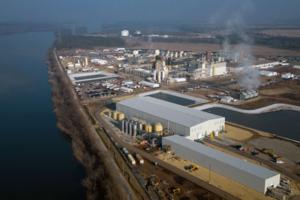
Trump EPA gutting limits on certain forever chemicals, delaying deadline to reduce others
In a rare acceptance of regulations adopted during the Biden administration, the Trump-led Environmental Protection Agency is backing the first national limits on a pair of toxic forever chemicals contaminating the drinking water of most Americans.
But the Trump EPA wants to eliminate standards for a handful of replacement chemicals that appear...Read more

Proposal to limit hunting of coyotes draws ire of California ranchers, farmers
A proposal to regulate the killing of coyotes in California has drawn fierce opposition from ranchers and farmers, who say they need to be able to control the wild canines to protect livestock and pets.
Dozens of people whose livelihoods rely on California’s broad range lands are expected to pack a hearing in Sacramento on Thursday before a ...Read more

How a worm perpetuated wildfires in northern Minnesota
Wildfires are burning through thousands of acres of forest in Northern Minnesota, damaging buildings and forcing residents to evacuate their homes.
The yet-to-be-contained Camp House fire, Jenkins Creek fire and Munger Shaw fire have a small accomplice to thank for their continued destruction: spruce budworms, a well-known pest that has ...Read more
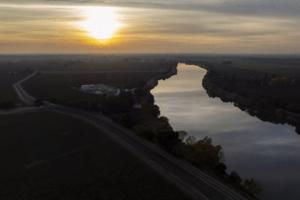
Newsom seeks to short-cut process to build $20 billion Delta water tunnel
California Gov. Gavin Newsom is proposing to accelerate his administration’s plan to build a $20 billion water tunnel beneath the Sacramento-San Joaquin River Delta by short-cutting permitting for the project and limiting avenues for legal challenges.
Newsom urged the Legislature on Wednesday to adopt his plan to “fast-track” the tunnel, ...Read more

Why is Microsoft, the world's most valuable company, cutting workers?
Microsoft is laying off more than 6,000 employees in an effort to streamline its corporate ranks.
The Redmond, Washington-based software giant said Tuesday that the layoffs, which will affect almost 2,000 workers in Washington state, are meant in part to strip away layers of management and create more nimble teams.
Sound familiar?
Microsoft ...Read more
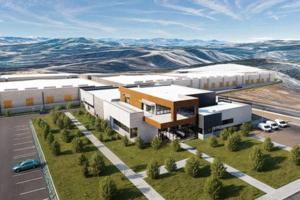
US data center to add batteries without lithium mined overseas
A data center builder and a battery startup have agreed to deploy a novel type of energy storage for the first time at a U.S. data center. It’s the latest example of tech companies’ search for ways to manage the soaring energy needs of artificial intelligence.
Prometheus Hyperscale and XL Batteries will install what’s known as an organic...Read more

SpaceX launches latest Starlink mission from Cape Canaveral
SpaceX knocked out another Starlink launch from Florida's Space Coast on Wednesday afternoon.
A Falcon 9 rocket carrying 28 of the company’s internet satellites lifted off at 12:38 p.m. Eastern time from Cape Canaveral Space Force Station’s Space Launch Complex 40.
The first-stage booster for the mission made its fourth flight making ...Read more

SpaceX aims for afternoon launch from Cape Canaveral
SpaceX has lined up another Starlink launch from Space Coast for early Wednesday afternoon.
A Falcon 9 rocket carrying 28 of the company’s internet satellites is targeting a 12:38 p.m. liftoff from Cape Canaveral Space Force Station’s Space Launch Complex 40 with backups available until 2:47 p.m. as well as on Thursday beginning at 11:17 a....Read more

Review: With ‘Fatal Fury: City of the Wolves,’ an old rival keeps pace
“Fatal Fury” has always felt like the Pepsi to the Coca-Cola of “Street Fighter.” SNK’s fighting game series emerged around the same time as Capcom’s iconic franchise but never rose to its iconic heights. At 1990s arcades, when fans huddled around cabinets featuring Ryu and company, the ones showing Terry Bogard were usually open. ...Read more

Gadgets: Outdoor lighting system
Pick a color, any color. Once you choose a single color, multiple colors or patterns and effects, you'll have a whole new look for the do-it-yourself Enbrighten outdoor lighting systems.
As far as installation goes, when a company tells me it's easy, it often isn't. But in the case of Enbrighten, it was even easier than I could have imagined....Read more

Jim Rossman: A dock can help connect a bare hard drive to your computer
This week I got an email from a reader who asks, “I have a stand-alone hard drive that cannot be accessed anymore. I've tried different laptops and different cables, but to no avail. The light is still on it (it is a Seagate Free Agent hard drive, probably 10 years old or so), but it no longer makes any noise. Of course, I have all my ...Read more

Jamie Lee Curtis just wanted an AI ad removed, not to become the 'poster child of internet fakery'
Jamie Lee Curtis didn't expect to be at the forefront of the artificial intelligence debate in Hollywood. But she didn't have a choice.
The Oscar-winning actor recently called out Meta Chief Executive Mark Zuckerberg on social media, saying the company ignored her requests to take down a fake AI-generated advertisement on Instagram that had ...Read more

Tech review: Gaming monitor does double duty as a video streamer
Where I work, I get to choose if I have a desktop or a laptop.
We buy Dell computers and our preferred configurations for desktops and laptops are very close in cost.
Because I work on my computer all day, and we have more than one office, I chose a laptop so I can pick it up and take it with me when I’m working at one of our other buildings...Read more
Residents of California town baffled by mysterious exploding birds
The residents of a California town are raising the alarm after dozens of birds appear to have exploded without explanation.
The phenomena appears to be limited to a single neighborhood in Richmond, about 10 miles north of Oakland.
Neighbors claim that more than 50 birds have suddenly fallen dead to the ground after sitting on a stretch of ...Read more

Google unveils major Android redesign ahead of iPhone overhaul
Google unveiled the biggest update to its Android mobile operating system in years, weeks before its biggest competitor in the space, Apple Inc., is expected to give a preview of its overhauled iPhone software.
The Alphabet Inc. unit is rolling out a new, bolder design language — called Material 3 Expressive — that spans the entire Android ...Read more
California eaglets Sunny and Gizmo get ready to test their wings
LOS ANGELES — Fans of Big Bear's bald eagle family — stars of their own webcam reality show — watched over the winter as parents Jackie and Shadow finally welcomed offspring to the nest after several previous attempts led to heartbreak. Now, in just 2 1/2 months, their eaglets have sprouted up.
Time flies — and, any day now, so will ...Read more

Sam Altman's eye-scanning orbs have arrived, sparking curiosity and fear
Earlier this month, a mysterious store selling a vision of the future opened its doors in downtown San Francisco's Union Square district.
A cryptic message appeared on the storefront window: "World is the real human network. Anonymous proof of human and universally inclusive finance for the age of AI. Millions of humans in over 160 countries. ...Read more
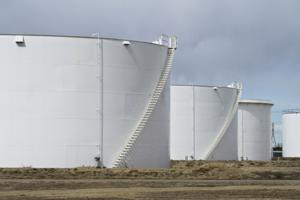
Local governments in Colorado demanding more accountability from oil and gas
When the Denver City Council rejected a $25 million contract with Suncor Energy last week, it was just the latest example in the past year of local governments in Colorado pushing back against the oil and gas industry.
The council voted unanimously as its members cited the Commerce City oil refinery’s repeated violation of its air and water ...Read more

Trump administration cuts endanger many critical science programs in Alaska, researchers say
Scientific work that has long benefited Alaskans is in the crosshairs as President Donald Trump's administration moves to slash funding for climate and environmental studies, Alaska scientists say.
Entire research institutes that often work with universities, such as the Alaska Ocean Observing System that provides critical weather data and ...Read more
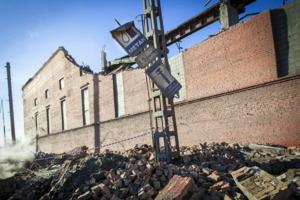
These researchers are charged with defending the planet against asteroids
In December, astronomers identified that the asteroid YR4 had a small but not insignificant chance of striking Earth in 2032, a scenario that experts postulated could have more explosive potential than 500 Hiroshima nuclear bombs.
Researchers reclassified YR4 as a non-threat in February, but the interim period when the asteroid was considered a...Read more
Popular Stories
- Review: With ‘Fatal Fury: City of the Wolves,’ an old rival keeps pace
- Gadgets: Outdoor lighting system
- Jim Rossman: A dock can help connect a bare hard drive to your computer
- Residents of California town baffled by mysterious exploding birds
- Google unveils major Android redesign ahead of iPhone overhaul





